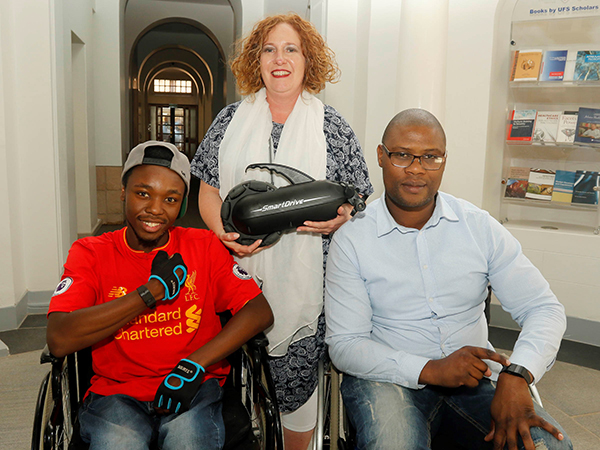Latest News Archive
Please select Category, Year, and then Month to display items
27 December 2021
|
Story Jóhann Thormählen
|
Photo Supplied
 The Kovsie Annerie Dercksen is one of South Africa’s most promising youngsters and climbing the cricketing ladder.
The Kovsie Annerie Dercksen is one of South Africa’s most promising youngsters and climbing the cricketing ladder.
She enjoyed every second of playing with some of her heroes and believes the exposure to international cricket will help her become a better player.
Annerie Dercksen is one of South Africa’s most promising youngsters and climbing the cricketing ladder.
Star from Beaufort West
This second-year Education student from the University of the Free State (UFS), who dreams of playing for the Momentum Proteas, represented the South African Emerging Women’s team three times in 2021.
The star from Beaufort West toured with the side to Bangladesh and also played against Zimbabwe and Thailand in One Day and T20 matches.
According to Dercksen, it is an incredible honour and privilege to be a part of a side.
She soaked up the experience and says everyone was willing to share their knowledge.
“I would have to say, sharing the field with some of my heroes and getting to work with some of the best coaches in the country are some of the highlights.”
She says each tour brought its own challenges and this helped her grow in the way she views and approaches the game.
“In Bangladesh we played against a well-established team in foreign conditions while facing a lot of spinners in spin friendly conditions. Personally, it was quite a challenge and I had to come back and work on some options, especially against spin.”
“Each tour brought its own challenges and this helped me grow in the way I view and approach the game.” - Annerie Dercksen
Coming through the ranks
The all-rounder has come through the ranks. She represented South-Western Districts at school level, played for the South African U19 side and is currently representing the Free State.
But Dercksen didn’t always dream cricket, especially not when playing ‘backyard’ cricket with her brother on the farm.
She didn’t even play for a team at school. “Until a boy from our primary school’s team got sick before a game. A teacher came to class and asked, ‘who can play cricket’, and I put up my hand.”
SmartDrive devices give UFS wheelchair users more independence
2017-12-01

From the left, are: David Mashape; Martie Miranda, Head of the
Center for Universal Access and Disability Support at the UFS;
and Lawrence Qamba, celebrating the recent acquisition
of two SmartDrive Power Assist devices.
Photo: Johan Roux
Students who make use of wheelchairs at the University of the Free State (UFS) will now be able to move around campus more independently than before. This is thanks to two SmartDrive Power Assist devices acquired by the university.
Accessibility is very important to the institution and with these devices clipping onto a manual wheelchair to make it motorised, students will not have to ask for help that often. It will assist them in overcoming obstacles they face every day.
Different surfaces pose different challenges
According to Martie Miranda, Head of the Center for Universal Access and Disability Support (CUADS), one of the most important advantages of the SmartDrive machines is that it enhances the independence of students. The devices were bought with funds received from the Department of Higher Education and Training specifically allocated for accessibility and infrastructure.
“While the UFS is addressing inaccessibility on its campuses, which will take time, this will help to motorise wheelchairs for wheelchair users to move around more easily. Students can now move around independently without necessarily asking for help, for example, to get up very steep ramps.” Miranda says some surfaces, such as grass and gravel, has its own unique challenges for wheelchair users.
A few years coming
The SmartDrive devices are operated by a Bluetooth watch. By tapping twice on the chair or clapping twice, the motor propels the wheelchair forward and stops when tapped twice, while also braking with one’s hands. The speed can also be controlled by the user. The machines use rechargeable batteries, with a fully charged battery lasting up to 15 hours.
Acquiring the devices was a process of a few years, and CUADS is happy to finally employ them to the benefit of their students. Miranda says the determination and support of Prof Nicky Morgan, Vice-Rector: Operations, and the assistance of Nico Janse van Rensburg, Senior Director: Top Management, were instrumental in buying the devices.